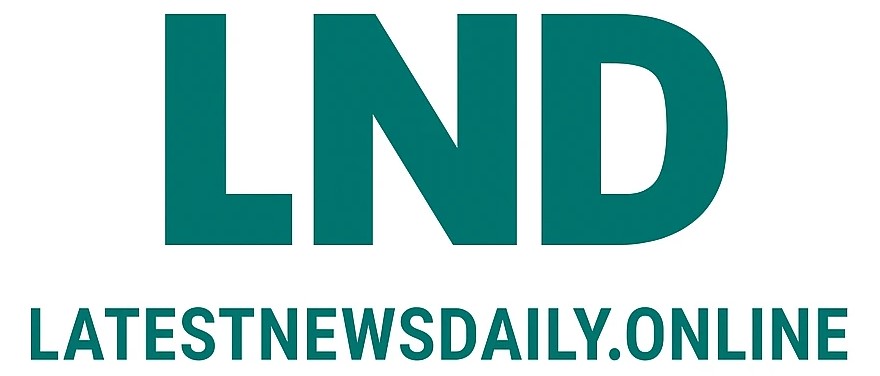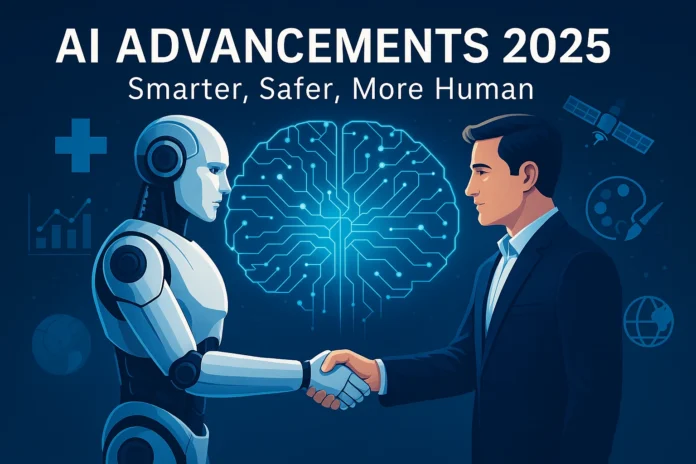Introduction: AI Is No Longer the Future—It’s the Now
Artificial Intelligence (AI) is no longer a futuristic concept locked inside sci-fi movies. It’s woven into the fabric of our daily lives—from personalized recommendations on Netflix to life-saving diagnostics in hospitals. In 2025, AI has reached new milestones that are not just technical marvels but also real-world changemakers.
Whether you’re a curious reader, a startup founder, or just someone wondering how AI will affect your job or life, this blog will walk you through the most significant AI advancements this year—explained in plain English, no jargon, no hype—just humanized insights.
1. AI Gets Smarter, But Also Kinder
One of the most notable shifts in 2025 is not just how intelligent AI has become, but how ethically it’s being designed. There’s a growing global push for Responsible AI, ensuring machines understand and respect human values.
Tech giants and regulators are finally working together on frameworks for bias-free, privacy-safe AI systems. For instance, several large language models now include built-in transparency protocols—you can ask them why they made a decision, and they’ll explain it like a teacher, not a black box.
Why It Matters:
This helps build trust. As AI becomes a co-worker, a tutor, or a healthcare assistant, understanding its reasoning makes all the difference.
2. The Rise of AI Co-Pilots in Everyday Jobs
Forget about AI taking jobs. In 2025, it’s helping people do their jobs better.
- For developers, AI code assistants are reducing debugging time by 40%.
- For marketers, AI tools can now generate complete campaign strategies from a single idea.
- For doctors, AI diagnostic tools are flagging early signs of diseases with greater accuracy than ever.
These aren’t just gimmicks—they’re tools that are saving hours of human effort and improving decision quality. Think of AI as the co-pilot, not the pilot.
3. AI in Healthcare: Saving Lives, One Algorithm at a Time
If there’s one sector where AI advancements have made a heart-touching difference, it’s healthcare.
- AI-powered imaging tools are diagnosing breast cancer 20% earlier than traditional methods.
- Predictive analytics are helping hospitals manage patient loads more efficiently.
- Wearable devices with AI are monitoring heart health in real-time and alerting patients and doctors in emergencies.
The emotional impact of this? Families reunited. Lives extended. Peace of mind delivered.
4. AI Meets Creativity: The Human-Machine Art Collab
Creativity used to be “too human” for machines. Not anymore.
In 2025, AI has become a co-creator. From music to paintings, from novels to screenplays, AI tools are now collaborating with artists, not replacing them.
- Platforms like DALL·E, Suno, and Sora are producing music videos and cover art in minutes.
- Writers use AI to brainstorm plots, fix pacing, and even suggest new character arcs.
The result? More people can express themselves creatively without needing a big budget or fancy tools.
5. AI and Language: Translation, Communication, and Connection
Language models have come a long way. In 2025, real-time multilingual AI interpreters are breaking down barriers in international collaboration.
- Students in rural India are learning biology from a teacher in Canada—with live subtitles in their native tongue.
- Businesses are expanding globally without hiring multiple translators.
This isn’t just about convenience—it’s about equal access to knowledge.
6. AI for Climate and Sustainability
AI is helping us fight the most critical issue of our time—climate change.
- Satellites powered by AI are monitoring deforestation and illegal mining in real time.
- Energy grids use AI to optimize renewable energy distribution, reducing waste.
- Smart agriculture tools are boosting crop yields with precision irrigation.
Sustainability is no longer guesswork—it’s data-driven and AI-optimized.
7. What the Road Ahead Looks Like
Despite all these gains, 2025 is also a year of reflection in the AI community.
There are concerns about:
- Job displacement in certain industries.
- Misinformation generated by deepfakes and synthetic media.
- The need for global AI regulation.
The good news? Conversations are happening. Policies are being drafted. And awareness is at an all-time high.
Final Thoughts: Don’t Fear AI—Learn It
AI is not something to be afraid of. It’s something to engage with, understand, and harness. You don’t need a computer science degree to explore AI anymore. Many free tools, courses, and communities are welcoming beginners with open arms.
If you’re curious, start small. Use AI to organize your week, plan a trip, or brainstorm ideas. Once you experience its magic, you’ll start seeing it not as a threat, but as a partner.
FAQs:
No. AI is expected to automate repetitive tasks, but human creativity, empathy, and judgment still play a central role. AI will assist more than replace.
Start with user-friendly platforms like Google AI, Khan Academy’s AI courses, or even YouTube tutorials on ChatGPT, Midjourney, etc.
Yes, if used responsibly. Always check the privacy policy of AI tools and avoid feeding sensitive or personal data into unknown platforms.




